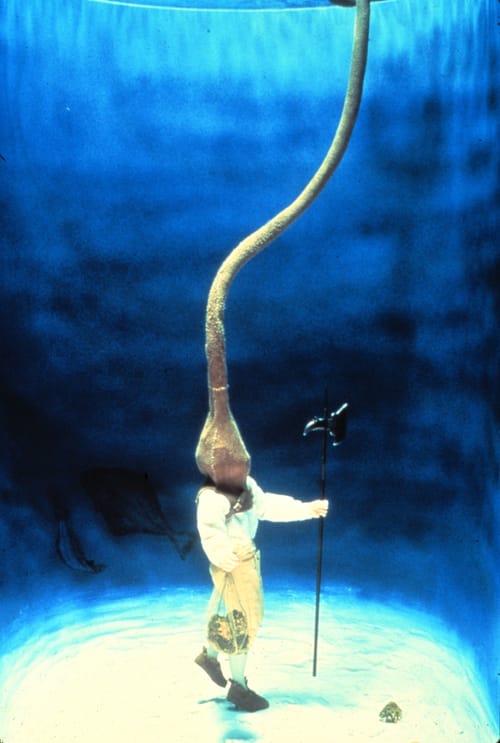Discussions on wreckage/salvage will take place in a semi-sheltered space to encourage generative and generous conversations. Practically, "shelter" here means two things:
- On the technical side, comment threads will only appear on posts open to supporting members*, which means that everyone participating has put at least a little bit of their resources behind the aims and goals of this work. This is not perfect protection against bad-faith participation, but my hope is that it means we all begin from a set of shared concerns and desires for and about our networks.
- On the social side, I ask that commenters follow the Chatham House rule when quoting each other elsewhere: “When a meeting, or part thereof, is held under the Chatham House Rule, participants are free to use the information received, but neither the identity nor the affiliation of the speaker(s), nor that of any other participant, may be revealed.”
I would like us to seek to build our collective understanding according to the dialectical principle of charity, which is a super-nerdy term for a way to think together that I’ll crudely summarize as, “Assume good faith, clarify potentially unclear points before going on the attack, formulate disagreements based on the strongest version of the opposing argument, and avoid unwarranted certainty.”†
The discussions here will be welcoming to participants of all races and ethnicities, genders and gender-identities, transition statuses, sexual orientations, physical abilities, physical appearances, and religions. They will be stringently unwelcoming to hostility or bigotry against any person or group on the basis of any of those categories—and also to other forms of obvious asshole behavior.
Please do approach conversations here with curiosity and consideration, and actively seek to acknowledge and respect the boundaries of your fellow participants. Don't deliberately intimidate, harass, or misgender anyone and don't make sexual or discriminatory comments or jokes. Online conversations, like offline ones, flow best when no one person dominates, so if you tend to hang back, please jump in! And if you catch yourself writing an order of magnitude more than anyone else, consider taking a breather between replies.
Finally, I’ll note that an insistence on civility can provide cover for the purportedly civil expression of ideas that are in fact inimical to community—in the sense of communitas, which is present in both commune and communion. No degree of politeness redeems bigotry, and requiring anyone to politely tolerate bigotry is deeply uncivil. Human conviviality is a balancing act, and I explicitly acknowledge that my request for generosity and charity requires that I accept responsibility for maintaining boundaries against the deepest breaches of civility. Which I do.
Reports of violations should be made to safety@wrecka.ge. If any participant violates this code of conduct, I reserve the right to boot them, but in my experience, most problems can be mitigated with a little cooling-off period and some one-on-one conversations.
Notes
(*) Supporting members are almost all people who have signed up for paid memberships; I also offer comped memberships to people whose work I financially support, because it's silly to send money in a circle and pay service fees at every step.
(†) I like the dialectical principle of charity for its focus on productive collaboration toward knowledge and truth, even though anything with “dialectical” in its name is going to make some of us twitch. A longer definition, from the foundational paper on the DCP:
A. When interpreting, choose the best possible interpretation and skip the minor mistakes of the opponent’s argument.
When the proposition or the argument is ambiguous, one should choose the best interpretation, that is, the most reasonable one. If the argument contains some irrelevant problems or obvious mistakes in the argument, it is better to ignore them (if they are not crucial to the main point that the opponent is trying to make).
B. Assume the good will of the opponent’s intentions.
To put it in more simple terms, if the interlocutor’s argument seems problematic, it is good to assume that it is unintentional on their part, as long as it is reasonable to do so. It means that, if possible, one should give people the benefit of the doubt, and attribute issues in their arguments to a misunderstanding on their part, rather than to a malicious intent to deceive.
The third component might not seem essential, but it proves to be very useful in any discussions which are truth-oriented and especially in academic debates. It might be overwhelming, misunderstood or even redundant in everyday life arguments, but some authors include it in the charitable interpretation.
C. Consider using a logically structured approach to the opponent’s argument.
It is highly beneficial, but very rare, to attempt to re-express your opponent’s position so clearly, logically structured, and fairly so your opponent might say: “Thank you for putting my thoughts so clearly!”
I’ve cribbed from Mandy Brown’s work/shop code of conduct, and from the SRCCON code of conduct, which I co-wrote with my extremely thoughtful teammates at OpenNews back in the day, and which draws on several other great documents made by other teams. If you like anything in this version, please feel free to adopt and adapt it.
The featured image for this post is from NOAA's wonderful National Undersea Research Program (NURP!) "Voyage to Inner Space" archives, and seems to be an artist's interpretation of what NURP called "Roman Vegetius' impractical vision of a leather helmet and umbilical for war."
